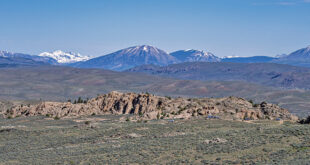Last week I attended a training for business leaders over two days. I was the only reporter and editor in the room—besides the trainer, who is a columnist at a daily newspaper—and part of the training focused on how to work with the media.
As someone in the industry, it was interesting to hear how business people view media in general and reporters in particular.
Unfortunately, it seems to be with a great deal of mistrust.
The training was preparing businesspeople for worst case scenarios but some unsavory themes emerged. Here’s the gist of it: Reporters and editors are under-trained, they don’t know the issues, they’re attempting to trip up sources, trying to make them or the organization look bad; they often try to stir up controversy when it’s not there, and they’re working fast against deadlines and are prone to errors. In addition, our trainer noted that media has a tendency to focus on the bad instead of the good and reporters are often extremely cynical folks. We discussed that once reporters start calling you, there’s no escape—you either answer or face the dreaded “would not return repeated calls for comment” in their story.
I was shocked by the negative perceptions of news organizations. I talked about my surprise with my family over a lunch a couple of days later. Their response was “Well, duh. People don’t trust the media.”
I understand the news business has its warts. I watch the 5 o’clock news or pick up a daily newspaper and sometimes wonder if a suspected child molester, murder trial and disastrous traffic accident, while gut wrenching, really represents what’s most important to Coloradoans. The old mantra “If it bleeds, it leads” has never felt so tired.
I don’t think I’m the only one who feels this way. According to a New York Times article written by Richard Pérez-Peña, newspaper circulation (the best gauge of readership) has either been stagnant or declined amongst the nation’s dailies. Some of that readership is being picked up by online papers, but some isn’t.
While I admit obvious bias, I still see newspapers and other media in a positive way. At their best, news organizations can inspire, engage and inform citizens. Newspapers are committed to digesting information so it’s easy for people to understand complex issues in a short period of time. We share inspirational stories, highlight causes, deliver information—and help democracy work. Of course, it’s the media’s job to shed light on things that aren’t going well. Yet it’s not to make people look dumb unnecessarily but to ensure that things get better.
Of course, I don’t have any control over what’s happening in the media at large. But here at the Crested Butte News, we strive to represent our community fairly and accurately. We attempt to pick up on the goods news, as well as the things that need work in our county.
In the New Year, I resolve that the News will become an even better newspaper than it is today.
We’ll continue to do what we’re good at and work to improve. Specifically, I see the Crested Butte News providing the most accurate and balanced information about local issues available. I also pledge to work on having fewer mistakes like incorrect name spellings and other minor errors that sometimes plague these pages. In addition, we will utilize our website to better serve local residents and long-distance readers, and use more charts and graphs to make information easier to digest. Finally, in 2008, I think you’ll find additional investigative reporting pieces and more feature-type stories, which tend to focus on the good. With these resolutions in mind, I think 2008 will be a great year.
Thank you for all your support in 2007 and have a Happy New Year.
—Aleesha Towns
 The Crested Butte News Serving the Gunnison Valley since 1999
The Crested Butte News Serving the Gunnison Valley since 1999





